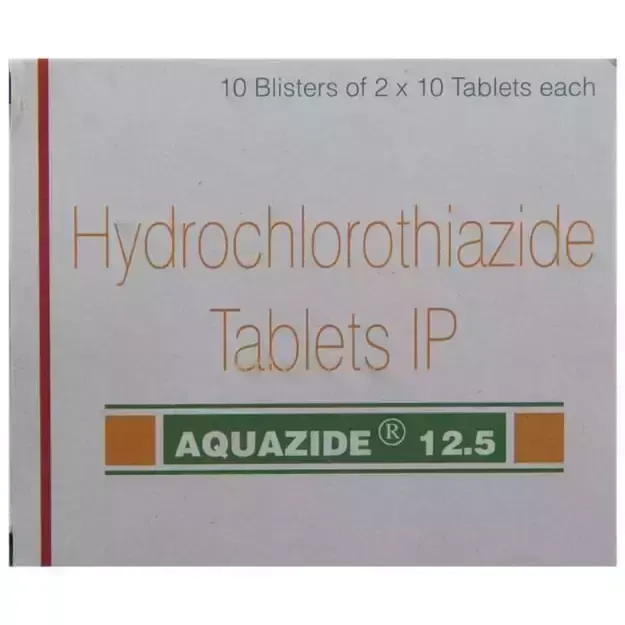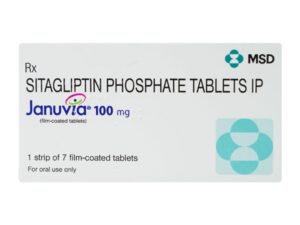Aquazide 12.5mg Tablet is a diuretic medication used for managing high blood pressure and conditions with fluid retention. It helps your body get rid of excess salt and water through urine. This relieves pressure on your heart and lowers blood pressure. It is also used to treat edema caused by heart failure, liver disease, or kidney disorders. Taking this medicine helps prevent complications like stroke, kidney failure, and heart attack. It is generally prescribed as part of a long-term treatment plan and may be combined with other medicines. It’s important to take Aquazide during the day to avoid sleep disturbances caused by nighttime urination. Do not stop taking it suddenly, even if you feel well, unless your doctor tells you to. Managing your lifestyle—like reducing salt, staying active, and eating healthy—will enhance the effectiveness of the medicine.
 Uses
Uses
- Hypertension (high blood pressure)
- Heart Failure
- Kidney stone
Benefits of Aquazide 12.5mg
- Helps reduce high blood pressure by removing excess salt and water
- Treats fluid overload associated with heart, liver, or kidney diseases
- Supports heart function by reducing strain on the heart
- Helps manage symptoms of swelling in legs or lungs
- Reduces risk of stroke, kidney failure, and heart attack
 How Aquazide 12.5mg Tablet works
How Aquazide 12.5mg Tablet works
Aquazide 12.5mg Tablet contains hydrochlorothiazide, a type of water pill known as a thiazide diuretic. It works by increasing urine output, helping your body remove extra water and electrolytes, especially sodium. Over time, it also relaxes blood vessels, which improves blood flow and reduces blood pressure. By reducing excess fluid in the body, it helps relieve symptoms like swelling, breathlessness, and heaviness. It also lowers the workload on your heart and kidneys. Regular use, along with monitoring of blood pressure and kidney function, helps ensure safe and effective treatment. Always take this medication exactly as directed by your doctor.
 Side effects
Side effects
- Dizziness or lightheadedness, especially when standing up
- Nausea or upset stomach
- Weakness or fatigue
- Headache
- Low potassium levels






